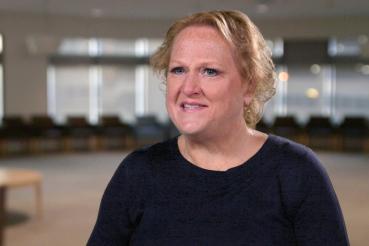When excess weight is causing health problems, weight loss surgery can be a safe tool for long-term weight loss success. More than just a cosmetic change, weight loss surgery can drastically improve high blood pressure, diabetes complications and more.
Biliopancreatic diversion with duodenal switch (shortened to duodenal switch) is one type of weight loss surgery. Duodenal switch reduces the size of your stomach and changes the way food moves through your intestine. When changing the path of your intestine, your surgeon may make two connections (the traditional approach) or a single connection. The single-connection option is called single-anastomosis duodenoileostomy, or SADI. No matter which approach your surgeon uses, the duodenal switch is the most effective in terms of weight loss and resolution of obesity-related conditions, such as diabetes.
When combined with a personalized weight loss plan that includes a healthy diet and regular exercise, duodenal switch surgery can make it possible for you to achieve and maintain long-term weight loss.
Who qualifies for duodenal switch?
If you have a BMI of 40 or higher or a BMI of 35 with an obesity-related condition, you probably qualify for bariatric surgery. If you have tried diet and exercise to lower your weight but can’t keep it off, bariatric surgery can help.
We know it’s a big deal to consider weight loss surgery. Our team of experts is here to help you every step of the way. During your first visit with a surgeon, you’ll discuss all types of surgical options — including their benefits and risks — to help decide which one is right for you.
You might be a good candidate for duodenal switch if you have:
- BMI of 50 or more
- Type 2 diabetes
- Tried other bariatric surgery options in the past
After your first meeting with the surgeon, we take a series of steps to make sure your surgery is as safe as possible. This process includes blood tests, imaging of your stomach and a heart screening. You also visit a psychologist who specializes in working with bariatric patients. Our dietitians also meet with every single patient, building the foundation for successful weight loss after your procedure.
This process can take three to six months to complete. During this time, our team is available to answer any questions you may have and provide support.
What happens during duodenal switch surgery?
Duodenal switch surgery is performed under anesthesia. At Rush, duodenal switch is usually performed robotically. This means the surgeon will only make small cuts in your abdomen. As a result, you will have less pain when you wake up, a smaller chance of postsurgical infections and a shorter recovery time.
First, your surgeon will trim your stomach to roughly the size and shape of a banana. This part of the surgery is almost identical to sleeve gastrectomy.
Next, your surgeon changes where food enters your small intestine from your stomach. Your surgeon may use two new connections when reconnecting your stomach and your intestine (the traditional approach to duodenal switch). They can also use only one connection in a SADI procedure. Both approaches result in up to 75% of the intestine no longer coming into contact with food. Instead, food passes from your stomach directly into the last part of your small intestine.
How does duodenal switch surgery help me lose weight?
Because of the changes to the shape of your stomach, duodenal switch surgery limits the amount of food you can eat, and you’ll feel fuller faster.
This surgery also changes how your body absorbs the nutrients in food and turns them into energy. This change reduces hunger, increases fullness and improves blood sugar control. Your body will absorb much fewer nutrients from food, which you’ll supplement with vitamins and mineral supplements after surgery, as recommended by your weight loss team.
What is the recovery from duodenal switch surgery like?
Most people who have duodenal switch surgery return to work after about two weeks. To check on your recovery and your weight loss progress, you will have follow-up appointments regularly. The first will be two weeks after surgery, then again at three months, six months and a year after surgery.
During your recovery, your surgeon, dietitian and nurses will be available for any questions or concerns you have. Our staff members work specifically with bariatric surgery patients — so you’ll always have access to a provider who knows exactly what you’re going through.
How quickly will I lose weight after duodenal switch surgery?
Patients usually lose weight from duodenal switch surgery within six to 12 months following their procedure.
How much weight will I lose after duodenal switch surgery?
You can expect to lose up to 80% of your excess body weight after duodenal switch surgery.
For example, let’s say you are 6 feet tall and weigh 300 pounds. You have a BMI of 40. You are carrying about 120 pounds of excess weight — or the amount of weight you would have to lose to reach a normal BMI.
If you had duodenal switch surgery, you would lose about 96 pounds (80% of the 120 pounds of excess weight).
Rush Excellence in Duodenal Switch
- Preparation and dedication: Bariatric surgery is a major life change for most patients. We help every patient prepare for life after surgery, no matter which medical weight loss option they choose. Our weight loss specialists, dietitians and psychologists work with bariatric patients just like you every day.
- Experienced surgeons, backed by research: Our weight loss specialists have performed thousands of bariatric procedures. They know what to expect in the operating room and during recovery. Our bariatric surgeons also research the effectiveness of their procedures and techniques. They have published multiple studies on the outcomes and quality of life for bariatric surgery.
- Care where you are: In addition to our flagship hospital near downtown Chicago, Rush has locations throughout the region. Our weight loss team sees patients in multiple clinics. You don’t have to travel far to get care from nationally recognized bariatric surgeons.
- National accreditation: Rush University Medical Center is nationally accredited in bariatric surgery by the American College of Surgeons Metabolic and Bariatric Surgery Accreditation and Quality Improvement Program. Accreditation is given to programs that exceed the national standards in quality and patient safety.






